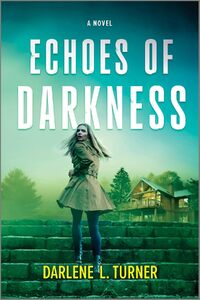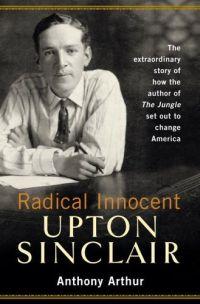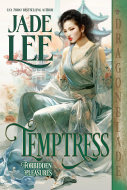PROLOGUE
Indiana University, Bloomington, Indiana
October 19, 1963
In 1895, when Upton Sinclair was sixteen years old, his
English teacher in New York commended him for giving a
speech that demonstrated "earnestness, feeling, spirit, and
appreciation of his piece." Particularly appealing to his
classmates, the perceptive teacher noted, was the young
scholar's "freedom from affectation."
Upton Sinclair’s audience on this autumn evening in 1963 was
much larger than it had been in 1895--an overflow crowd of
more than three thousand, mostly students. At eighty-five
years old, his slender body was stooped. The bright stage
lights highlighted his thinning white hair, his age spots,
his prominent beak of a nose and the round, wire-rimmed
spectacles that perched on it. His voice, as he announced
the subject of his talk--"Changing America and What Will
Happen to You if You Try"-- was thin and high, but it was
strong enough to hold the hall’s attention for the next
ninety minutes. Not once during that time did Sinclair refer
to notes. They were not necessary, because he was doing what
he had done for most of his life--telling a story that was
close to his heart with "earnestness, feeling, spirit, and
appreciation of his piece."
Sinclair's story was an appealing one for a generation of
college students whose idealism had recently been fired by
the election as president of the energetic young John F.
Kennedy. Simply put, it was that one man, fired by the zeal
to end injustice, could do it--or at least he could come
close and, in America, as opposed to most other countries,
live happily ever after. The old warrior’s talk concerned
his various battles with captains of industry. Of these, the
best known and most important was his first, about Ogden
Armour, the Chicago meatpacker whose plant Sinclair made the
key setting for The Jungle in 1906. That book, which
helped secure the subsequent passage of Pure Food and Drug
legislation, would by itself have guaranteed Sinclair a
niche in American history. Indeed, it was for The
Jungle, published when he was just twenty-seven years
old, that most of his audience in Bloomington knew him.
For a time it appeared as though The Jungle would
mark the end as well as the beginning of Sinclair’s career.
He was dismissed by some critics as a mere "muckraker," one
of those pesky investigative reporters bent on stirring up
trouble. He also had trouble handling his subsequent renown.
After all, he had been praised in a review of The
Jungle by Winston Churchill as a man of "very great
gifts" and even invited to chat with Teddy Roosevelt at the
White House. He became entangled in several communes and was
unfairly tarred as a debauched advocate of free love. His
first wife ran off with his best friend, an affair that his
new notoriety guaranteed was front-page tabloid news. His
second wife saw to it that he was estranged for nearly fifty
years from his only child--now a distinguished physicist
seated in the front row of the audience. For a long time he
was regarded as a one-book wonder, producing a string of
failed novels over the next fifteen years.
But Sinclair bounced back, as he would do throughout his
life--first with a series of popular non-fiction attacks in
the 1920s on religion, the press, and education in modern
America, and then as a politician, nearly becoming the
governor of California in 1934. His true fulfillment as a
writer would come after he turned sixty. Having spent a
lifetime as a self-described socialist propagandist, he
turned to historical fiction in a series of eleven novels
about the wars of the twentieth century. His appealing hero
Lanny Budd, through whose eyes these stories were told, knew
everyone from Hitler and Goering to F. D. R. and Truman. In
1943 Sinclair won the Pulitzer Prize for Dragon’s
Teeth, which described the rise of Nazi Germany.
Even the intrepid Lanny was a relatively passive observer
compared to his creator, who both witnessed and shaped the
history of the twentieth century. As a young man, Upton
Sinclair knew Mark Twain, Jack London, and Theodore
Roosevelt. In his middle years, he formed a political
alliance with Franklin Delano Roosevelt, and won the
admiring friendship of men as various as Albert Einstein,
Charlie Chaplin, Thomas Mann, and George Bernard Shaw. As an
old man, he was corresponding with Carl Jung and Albert
Camus, and in 1967 President Lyndon Johnson honored him at a
special White House ceremony.
Sinclair was the most conservative of revolutionaries. The
author of some ninety books and innumerable articles and
essays, he had no patience with stream-of-consciousness
narratives or even free verse. "He liked a writer to have
something to say, and to say it with clarity and precision,"
Sinclair said of his alter ego Lanny Budd, just as "he
disliked loud noises and confusion, and obscurity cultivated
as a form of exclusiveness." He was also a strait-laced
Puritan concerning sex--this, despite at least one
extra-marital fling and an intemperate habit when young of
linking marriage with prostitution and slavery. In a period
when heavy drinking was widely seen to be a social
necessity, if not a virtue, he despised alcohol, which had
killed his father. Indeed, he disdained any form of
indulgence: he even worried about his fondness for cakes and
pies, fearing that he had it in him to become a "food
drunkard."
These attributes, coupled with Sinclair’s customary
insistence that he knew best what was right for everyone
else, encouraged extreme views among both his admirers and
his detractors. To one disciple he was a "dearly beloved
saint"; to another not just "a saint "but "a second Jesus."
And to a third, a woman suffering from multiple sclerosis,
he was someone who "understands": "PLEASE PLEASE, Mr.
Sinclair, write to me," she begged. "That is all I ask." His
quick response, she replied gratefully, was "a purest ray
serene. You have been sweet and kind to write to me."
But the saint could also be self-righteous and petulant,
even absurd. His friend and one-time protégé Sinclair
Lewis--the general public still confuses the author of
Babbitt and Main Street with Upton
Sinclair--howled when Sinclair chided him in print for
making too much money: "My God, Upton, go and pray for
forgiveness, honesty, and humility!" H. L. Mencken traded
letters and barbs for many years with Sinclair and teased
him for his "credulity complex," for not seeing that the
"common people are damned to be diddled forever." Sinclair’s
own socialist publisher threw up his hands in dismay over
his belief in ESP and ghosts, calling him an "egregious
sucker," a "zanie," and "the Daniel Boone of Spookology."
And these were his friends. His enemies compared him to
Peter the Hermit and to Savonarola, the fanatical Florentine
monk who got himself burned at the stake.
Sinclair himself used characters from history, religion, and
literature as favored points of reference and departure. His
typical plot sent a naïve seeker in search of truth:
Voltaire’s Candide was one of his models, as was Christian
in Pilgrim’s Progress, a traveler in what John Bunyan
called the wilderness of the world. Another Sinclair
favorite was Siddhartha, the Indian prince who gave up "his
land and his treasures, and went out to wander with a
beggar's bowl, in the hope of finding some truth about life
that was not known at court."
Most of all, there was Don Quixote, whose adventures
prompted Sinclair to ask the question that guided him
throughout his life: "What shall be the relation of the
idealist, the dreamer of good and beautiful things, to the
world of ugliness and greed in which he finds himself?" If
he tries to apply his vision of the good, "the world will
treat him so badly that before he gets through he may be
really crazy."
As the breadth and depth of these allusions suggest,
Sinclair was a far more sophisticated man of letters than
most of his critics were willing to acknowledge. At the same
time, it was his calculatedly naïve manner that had let him
find so many readers among workers, shopkeepers, and the
poor; it was in this way that he became, as the subtitle of
this biography suggests, a "radical innocent." The manner of
the innocent seeker after knowledge had finally become the
man--and yet, as his closing anecdote for the audience in
Indiana revealed, the child had been father to the man all
along.
When he was a very small child, Sinclair said, his family’s
fortunes fluctuated wildly. Sometimes he was sent to stay
with his mother’s wealthy relatives in Baltimore, though
generally he lived with her and his pathetic father in New
York tenements and boarding houses. One day he asked his
mother to explain the reasons for such obvious and
unnecessary pain in a land of plenty, saying, "Why, Mama?"
He had gone on to ask that same question for the next eighty
years, he said. Even though he had done his best, he had to
admit failure: "I haven’t found the answer yet." But he was
still looking, he told his rapt listeners, still asking,
"Why, Mama?" He hoped they would continue to ask that
question, too.
# # #
(c) author and Random House






 © 2003-2025
© 2003-2025